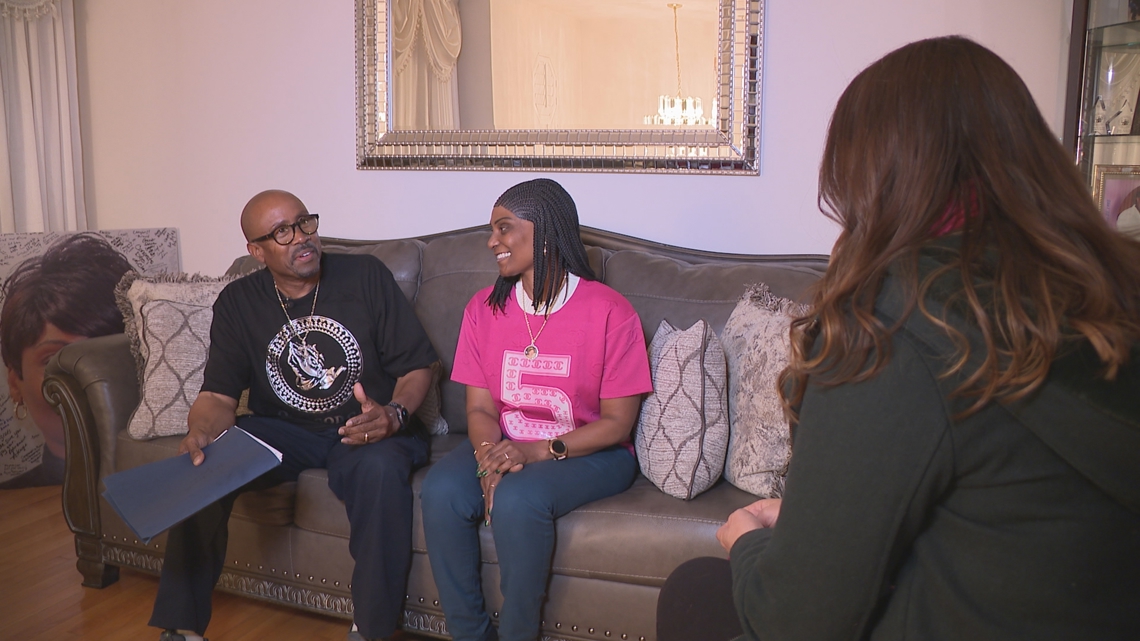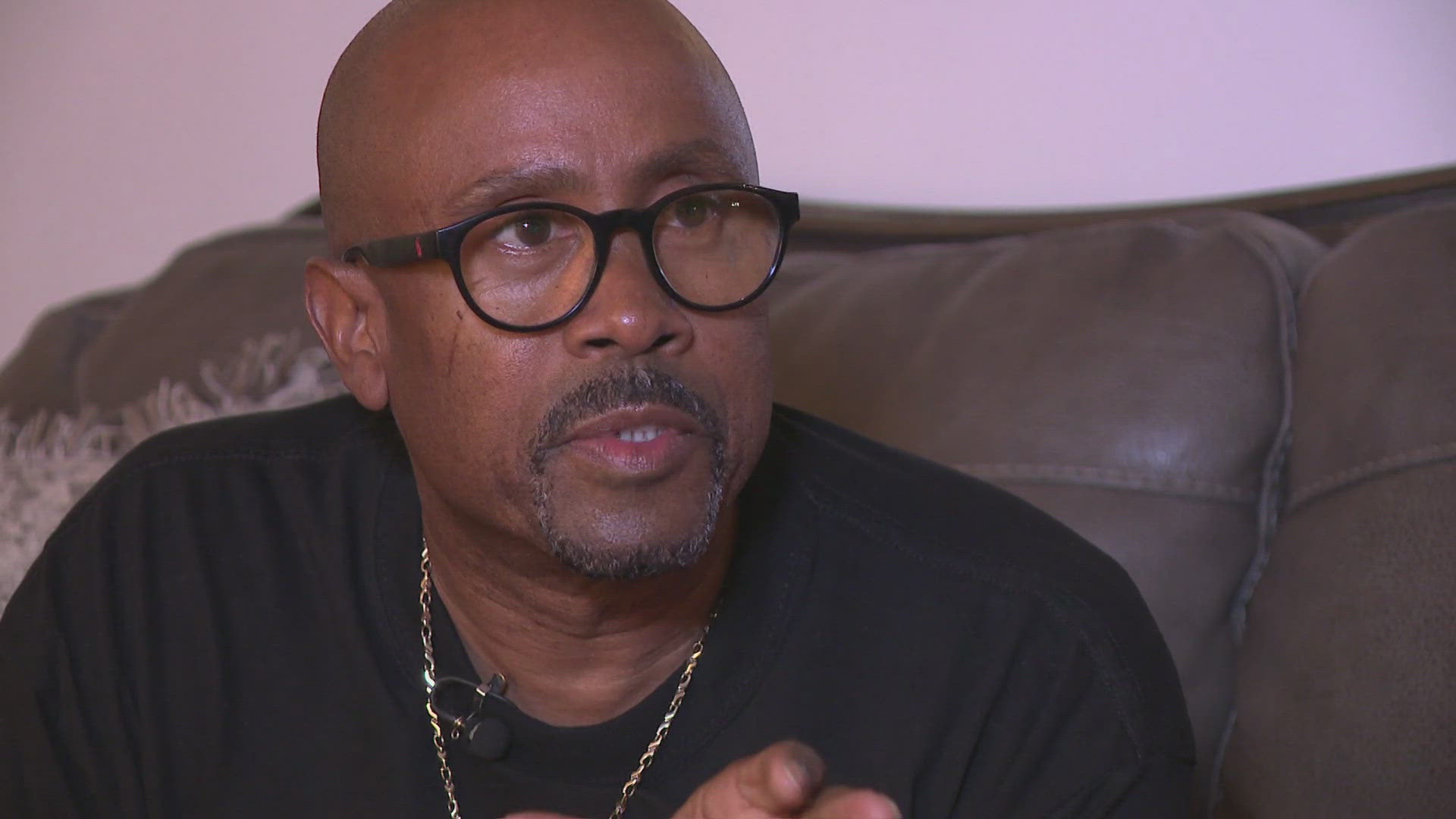CLINTON, Md. — The road to redemption, is finally over for Arthur Byrd, who received a full and unconditional pardon for a mistake he made 35 years ago; a decision that ultimately changed the course of his life.
He's one of three men from the D.C. area who were among the 39 people pardoned by President Joe Biden on Thursday.
In September 1989, Byrd got into a car with a friend, only to realize it was stolen.
"I should have gotten out of it, but I didn’t," Byrd recalled.
That choice led to a felony conviction and nearly a year behind bars.
However, instead of allowing that mistake to define him, Byrd set out to prove he was not a bad person. He went to college and worked hard to better himself. For nearly three decades, he volunteered with his church, helping his community by distributing food, coats, and gifts to those in need.
"We take our own money, we buy food, we go down the second of these shelter, we pass it out, we go to Martin Luther King Avenue. We go to all the shelters and just pass it out," said Byrd.
About eight years ago, with motivation from his mother and his wife, he decided to begin the process of applying to be considered for a pardon.
The process of receiving a pardon was one he never anticipated.
“The pardon process could be lengthy,” Byrd said. “And frankly, it doesn’t usually favor people from urban areas like where I’m from.”
Having faced constant hurdles due to his past, he began the long road to redemption in 2016, submitting the necessary paperwork to the Justice Department himself after being discouraged by lawyers.
"I did it all myself. I filled out the paperwork, and then they started investigating,” he explained. "They wanted to make sure I was doing what I said I was doing, that I had a steady job, and that I was living right."
The road to his pardon involved proving his commitment to a life of responsibility.
“You have to show that you’ve been a productive citizen,” Byrd said. “I’ve been doing everything I’m supposed to do. I’ve been working, paying the bills, helping others.”


For him, the goal was never just a pardon — it was about making himself a better person.
“My mother always taught me to treat everyone with dignity and respect, and my wife has always been there to support me,” he said. “It’s not about proving yourself to others, it’s about doing the right thing because it’s the right thing to do.”
"My mother always said, ‘Don't ever give up,’" Byrd shared. His wife also provided constant support, reminding him of the good work he was doing. "She said, 'You've been doing everything you're supposed to do. You’re taking care of your family, you’re serving the community. Believe in yourself. God’s going to take care of you,'" Byrd said.
He told WUSA9 he took personal responsibility for his past mistakes, recalling a fateful decision to remain in a stolen car, despite knowing better. “I made a mistake, but that doesn’t mean you should suffer for it your whole life. You pay for your crime, but if you turn your life around, you should be rewarded," he said.
Wednesday night, everything changed, when their house landline began to ring.
“I don't usually answer the house phone, but something told me to pick it up,” he recalled.
He told WUSA9 when he picked up the phone, a woman told him she was with the Department of Justice. "She said, 'You just received a full unconditional pardon from President Biden.' I was like, 'Is this a joke?'" Byrd recalled, overwhelmed with emotion. "I’m screaming and hollering, telling my wife, ‘Come here, do you hear this?’"
Still in disbelief, he told his wife, “Come here. Can you hear this?”
His excitement quickly turned to realization as the news sunk in.
Byrd’s pardon marks the end of a 35-year journey, one filled with hope and the belief that second chances are possible.
"If you do a crime, you do the time. I’m okay with that because I did my time. But society tells you that if you turn your life around, you should be rewarded." Byrd said. "That’s all I was looking for – a second chance,"
Now with a clean record and a heart full of gratitude, Byrd hopes his story inspires others.
"If you want to be a better person, you do better things," Byrd said. "You go out there, you help your community, you build your community."
He believes that doing the right thing will lead to better outcomes: "If you do the right thing in life, it gets better. It gets better, it gets better."
The pardon's impact reaches beyond personal freedom.
“It opens doors,” he said, noting past challenges with career advancement due to his felony conviction. “When I was up for a supervisor position at at my job, they told me I couldn’t have it because of my felony. It didn’t matter that it was nonviolent.”
Arthur Byrd's story highlights the importance of giving individuals a chance to prove themselves after they’ve served their time.
As he celebrates his new future, Byrd is also focused on advocating for fair treatment for others in similar situations.
“People deserve a second chance,” he said. “If you’ve paid your dues, why should a mistake from years ago keep you from getting a job and contributing to society?”
He encourages others to push forward, despite society’s judgments.
“You have to keep going, no matter what. Surround yourself with positive influences, and remember: never give up.”
His hope now is to see the pardon system serve as a true opportunity for all who are willing to work and live by the rules.
“It’s not about everyone getting a pardon, but everyone having a fair chance,” he said. “We all should be able to live and work without being judged by a past mistake.”

